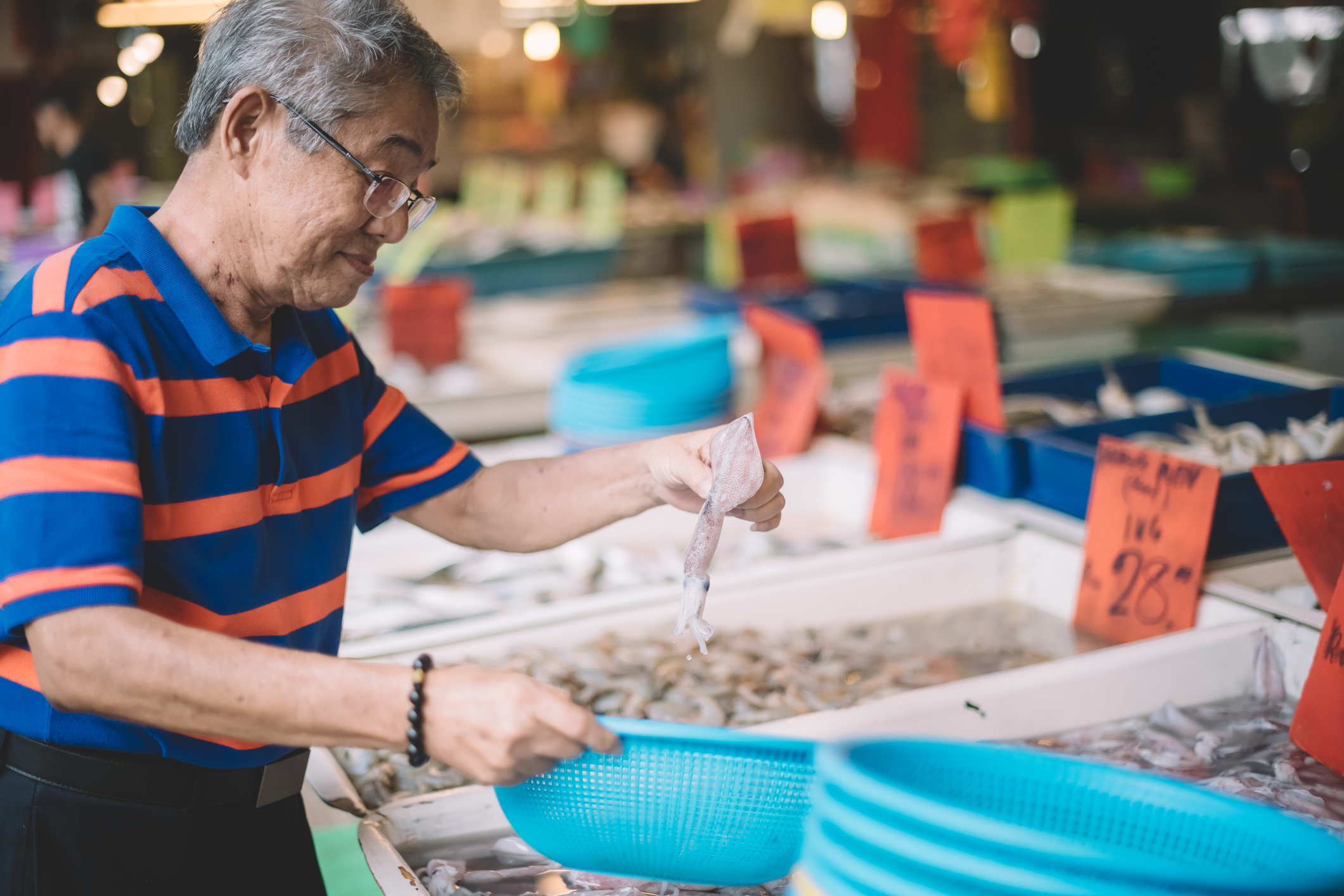"How can we transform wet markets in Nanjing to deliver a resilient supply of well-balanced, nutritious and sustainable diets to citizens, protect the livelihoods of the vendors and contribute to the National Food and Nutrition Program (2021-2035) in the context of post-COVID recovery?"
Wet markets in Asia are broadly comparable to the European ‘farmers market’. It is called ‘wet’ as opposed to ‘dry’ because the vendors need to hose down their produce to keep it cool and fresh. Compared to food halls in western malls, wet markets in Asia used to lack electrification and access to modern refrigeration.
In China, according to the “Regulation on the Standardised Wet Market Setting and Management”, a wet market is a marketplace with fixed space (including stalls, shops, business rooms) and corresponding facilities to sell all kinds of agricultural and sideline products. These include (but are not limited to) fruits and vegetables, meat, poultry and eggs and their products, aquatic products, dairy products, soybean products, condiments, cooked food bitterns, preserved products, grain and oil and their products, etc
A special attention was given to Asian wet markets due to the role Chinese wet markets reportedly played in the outbreak of the Covid-19 pandemic. Regardless of whether or not a specific wet market was the source of COVID-19, more attention should be paid to solving the root causes which make the outbreak of zoonotic diseases more frequent - unsustainable human activities, including increasing demand for animal protein and unsustainable agricultural intensification. In addition, pandemic and continuing lockdown in different Chinese cities has raised public awareness of health and nutrition and encouraged a re-assessment of food security. There is an urgent need for action to incentivize dietary shifts, and the wet market, as a major source of food for many urban populations, is an ideal place to intervene.
The dietary profile of residents of Nanjing shows that the consumption of cereals, vegetables, aquatic products and eggs is barely meeting the recommended requirements while the intake of whole grains and beans, potatoes, fruits, soybeans and nuts, and milk and dairy products is insufficient. In contrast the consumption of meat, oil and salt is higher than recommended amounts. Promoting a dietary shift in Nanjing will therefore have practical health as well as environmental benefits.
To keep up with transformations in demographics, technology and shopping habits, Nanjing wet markets are actively exploring options to transform their mode of operations and expand their role in everyday life. Key examples include swapping to electronic payment systems, hosting social events and cooking classes, and partnering with large property-management companies to deliver the supply of the wet market to the residents in the communities they manage. These efforts to secure the future of Nanjing’s wet markets have seen limited success (many are at a very early stage) - and opportunities exist to creatively reimagine the future of these vital food hubs. This policy BootCamp explored the question:
"How can we transform wet markets in Nanjing to deliver a resilient supply of well-balanced, nutritious and sustainable diets to citizens, protect the livelihoods of the vendors and contribute to the National Food and Nutrition Program (2021-2035) in the context of post-COVID recovery?"
Anchor Agency: Good Food Fund, China Biodiversity Conservation and Green Development Foundation
Beneficiary Agency: Wet market industry in Nanjing, China
Participating Agencies:
- Representatives from the wet market "industry" (from investment, development, management to vendors, from wholesale markets to retail markets, from public to private actors)
- Representatives from "New Retail" and other food retailers
- Representatives from food value chain stakeholders (farmers, brokers, food companies, restaurants, chefs, household consumers, etc.)
- Representatives from other stakeholders (food educators, nutritionists, culture & tourism, art & design, architecture & urban planning, NGOs, media, etc.)
- Youth participants from Good Food Funds Youth Talent Development Program
- Youth participants who will help facilitation
- Regulatory experts with decision-making power
- Industry experts with long-term experience in influencing change
- Local community leaders or union representatives
- Academic experts in designing and challenging change
- Voice of farmers and agri-preneurs who benefit from the market
- Voice of consumers who benefit from the market

